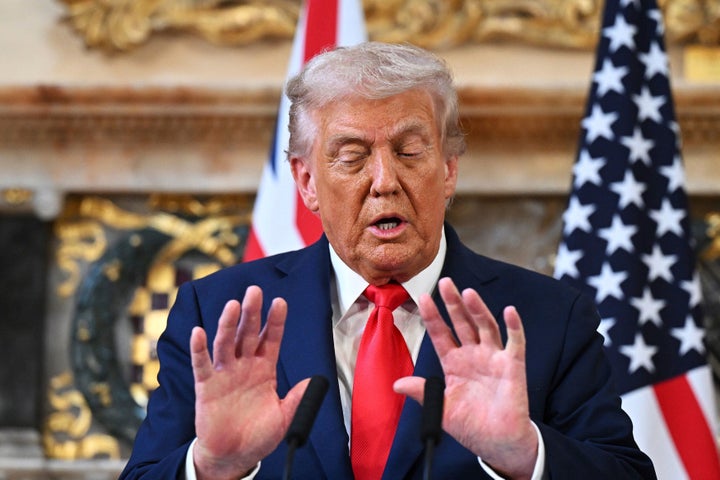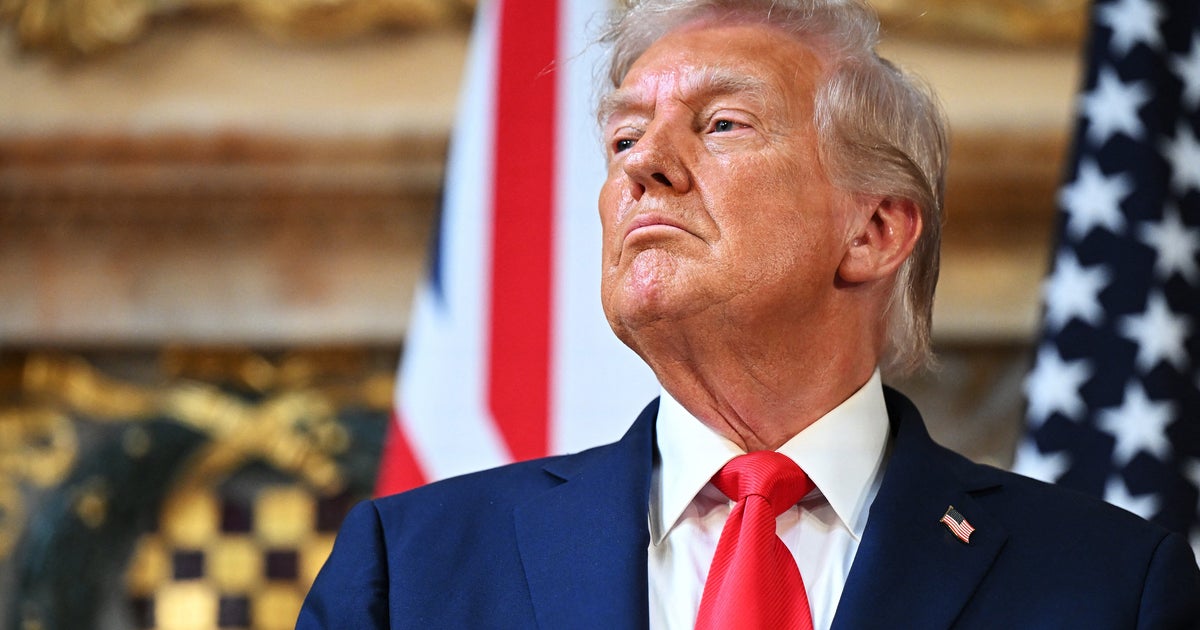WASHINGTON — President Donald Trump’s promised “golden age” of high tariffs has spiked inflation to levels higher than during his predecessor Joe Biden’s final year in office, increasing prices on everything from electricity to coffee.
In the four months since he announced his so-called “Liberation Day” tariffs on goods from the rest of the world, inflation on groceries is running at 3.1% on an annualized basis, according to a HuffPost analysis of federal government statistics. In Biden’s final year, grocery prices increased 1.8%.
The inflation rate for electricity over the past four months is running at 15.7% – more than four times what it was in Biden’s final year.
The overall inflation rate is now also higher than it was in Biden’s last 12 months in office: 3.1% on an annualized basis, compared to 2.8%.
“This is what economists warned would happen,” said University of Michigan economics professor Justin Wolfers. “Trump promised these prices would fall. While one could quibble about the rate at which these prices are rising, there’s no question that he hasn’t delivered.”
Trump’s White House did not respond to HuffPost queries on the topic. As he does on most matters, Trump has simply lied that he has fulfilled his promise, as he did Thursday at a news conference during his visit to Great Britain.
“We’ve already solved inflation. We’ve solved prices,” he claimed, falsely.

Trump regained the presidency in large part based on his pledge to lower prices, including specific promises to bring down food and energy costs. Eight months in, the trade war he announced during an April 2 Rose Garden ceremony is the major reason he is failing to keep those promises, according to Wolfers and other economists.
“We will pry open foreign markets and break down foreign trade barriers and, ultimately, more production at home will mean stronger competition and lower prices for consumers,” he promised. “This will be indeed the golden age of America.”
Instead of lowering costs, though, tariffs have brought higher prices, both because of the tax American importers pay for finished goods but also because U.S. manufacturers rely on so many foreign raw materials and intermediary parts.
“Donald Trump promised he’d bring costs down on ‘day one,’ but eight months into his term, inflation remains high, and now, it’s getting harder and harder to find a job as hiring slows to a near standstill and unemployment rises,” said Democratic National Committee Chair Ken Martin. “Americans aren’t being ‘liberated,’ they’re being robbed by Trump’s chaotic billionaire-first economic agenda.”
Perhaps the most extreme example of tariff-induced price hikes thus far is coffee, which is experiencing a 63% annualized inflation rate thanks in large part to Trump’s 50% import tax on major coffee exporter Brazil, a response to that country’s prosecution of Trump’s friend and fellow coup-attempter Jair Bolsonaro. “The way that Brazil has treated former President Bolsonaro, a Highly Respected Leader throughout the World during his Term, including by the United States, is an international disgrace,” he wrote in a July 9 letter in which he announced the tariff rate.
Jason Furman, once a top economist in the Barack Obama White House and now an economics professor at Harvard University, said none of this comes as a surprise to those in his field. “Note that tariff rates basically doubled in August, so we’ll be seeing more of it,” he added.
Trump made lowering grocery prices a top promise during his campaign to regain the White House. On Aug. 15, 2024, he held a news conference at his golf course in Bedminster, New Jersey, featuring a table loaded with food items. “When I win, I will immediately bring prices down, starting on day one,” he said.
After his election win, he said that his grocery price promise was a key reason for his victory.
“I won on groceries. Very simple word, groceries,” Trump told NBC News in December. “When you buy apples, when you buy bacon, when you buy eggs, they would double and triple the price over a short period of time, and I won an election based on that. We’re going to bring those prices way down.”
“The president hasn’t taken a single policy action that would lead one to expect lower grocery prices. Tariffs raise costs.”
– University of Michigan economics professor Justin Wolfers
In the final months of his campaign, Trump claimed he would bring energy and electricity costs down, too. “Basically, we’re going to drill, baby, drill. We’re going to get the energy prices down almost immediately,” he said at the Bedminster grocery price event.
He frequently claimed that lowering energy costs would lower prices for all sorts of other things, too. At one point, he said increasing domestic energy production would even make child care affordable for poorer Americans.
“Energy costs, all of it, air conditioning, heating, all of it, including gasoline, will drop by more than 50% within the first 12 months,” he told a Pennsylvania audience a week later. “Your bill will be less than half.”
That will almost certainly not happen. While gasoline prices did drop thanks to OPEC nations deciding to increase oil production, the cost of producing electricity has skyrocketed. Much of the country’s power is generated by burning natural gas, the price for which has run between 20% and 250% higher than a year earlier in the months since Trump took office. At the same time, power companies’ costs of replacing equipment or modernizing the distribution grid have gone up because of hefty tariffs on imported metals.
Trump’s worsening of inflation is likely to anger the very voters who tipped the balance of the 2024 election in his favor a year ago. A Fox News poll conducted last week shows “the cost of living” is now Trump’s worst issue, with just 32% of voters approving how he handles it and 67% disapproving.
“High prices were easily the most motivating factor for what we called ‘the double haters’ who didn’t like Biden or Trump,” said Republican consultant and pollster Sarah Longwell, who added that those voters assumed that eventual Democratic nominee Kamala Harris would merely be a continuation of Biden. “Ultimately, many of them voted for Trump because, despite what they saw as his many failings, they were hopeful he would make good on his promise to lower prices and that his ‘businessman’ background would be helpful in this regard.”
The University of Michigan’s Wolfers said Americans have no reason to expect that inflation will improve, given the totality of Trump’s economic policies.
“The president hasn’t taken a single policy action that would lead one to expect lower grocery prices. Tariffs raise costs. Meddling with the Fed undermines its ability to fight inflation. And deportations and lower immigration mean there are fewer workers, which has particularly large effects in the agricultural sector,” he said. “Add immense uncertainty, and you can see why things aren’t going well.”
